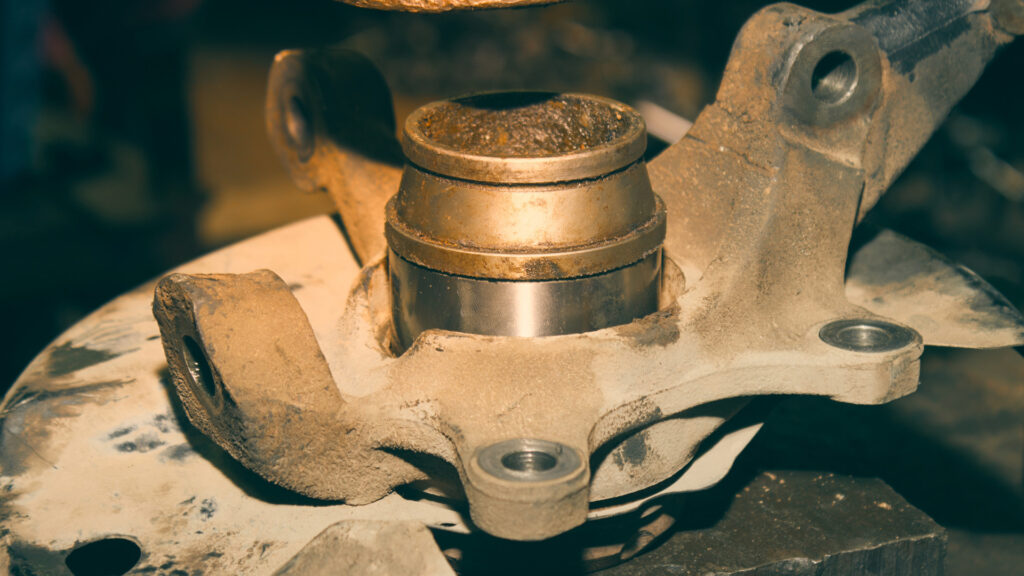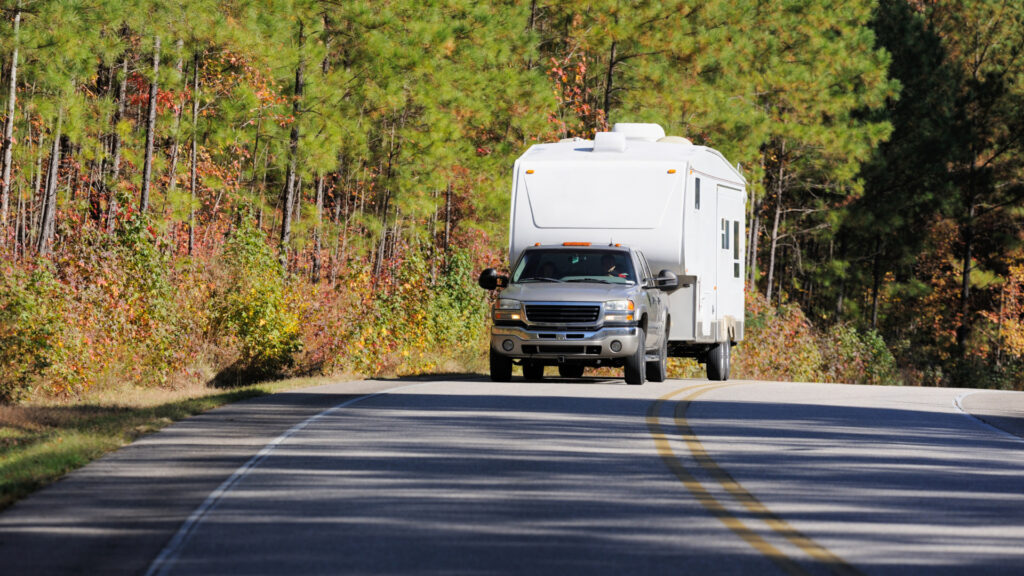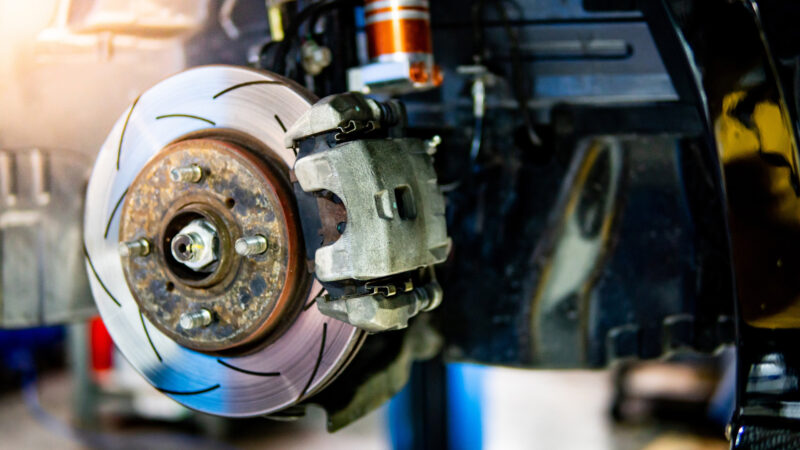Table of Contents Show
The wheel bearings on a vehicle or trailer tend to get overlooked until they start screaming for your attention. As they say, the squeaky wheel gets the grease. Right? The same rule applies to wheel bearings. Noisy wheel bearings are a sign that something isn’t right, and you shouldn’t ignore it.
Today, we’ll help you narrow down the possibilities and understand why you have noisy wheel bearings. Let’s get started!
What Are Wheel Bearings?
Wheel bearings are mechanical components between the wheel and the axle. They support the wheel while it rotates and allow it to spin freely while providing stability and reducing friction.
Wheel bearings are typically made of high-quality steel and sealed to protect against dirt, dust, and moisture.
Wheel bearings can experience issues due to normal wear and tear, improper installation, or exposure to the elements. When damaged or worn, they can produce a loud noise indicating the need for repair or replacement.
Regular maintenance and inspections can ensure longevity and prevent costly repairs.
Are Noisy Wheel Bearings Common?
Noisy wheel bearings become more common as they age. This can result from normal wear and tear, improper installation, or other causes, which we’ll discuss later.
However, just because they’re common doesn’t mean you can afford to ignore them. It’s important to have any noise from your wheel bearings inspected and repaired as soon as possible.
If not, you could face a more serious problem or safety issue if they’re not functioning properly.

Is It Okay to Drive With Noisy Wheel Bearings?
It is generally not recommended to drive with noisy wheel bearings. You should get them fixed as soon as possible. This can indicate that the bearings are damaged, worn, or failing, leading to more serious problems if left unaddressed.
In some cases, damaged or worn wheel bearings can cause the wheel to lock up, leading to a loss of control of the vehicle, which can be extremely dangerous.
Additionally, this can cause damage to other components of the vehicle, such as the suspension and the brake system. If you want to keep yourself and your car as safe as possible, avoid driving with wheel-bearing issues.
How Do You Fix Noisy Wheel Bearings?
If you’re experiencing noisy wheel bearings, you can fix them in a few ways. Unfortunately, you’ll likely want to pay a professional for these.
Depending on their age and condition, you may need to replace or repack the bearings. However, if they lack lubrication or have other contaminants, repacking with new grease can solve the problem.
Two other possible solutions include adjusting or tightening other components. Something as simple as a loose axle or spindle nut can cause noisy wheel bearings.
Additionally, if your wheels are out of alignment, it can cause some noises that you might think come from the wheel bearings.
If you’re having trouble pinpointing the cause of the noise, have your vehicle inspected by a qualified mechanic. They can help identify the issue and assist with any repairs if necessary.
Causes of Noisy Wheel Bearings
There are a handful of things that can cause noisy wheel bearings. Let’s look at some possible causes of abnormal noises while driving.
Normal Wear and Tear
Unfortunately, wheel bearings don’t last forever and will experience normal wear and tear. They will start making noises at the end of their usable life. You can expect anywhere from 85,000 to 100,000 miles from them.
However, mileage can vary significantly, depending on where you drive and the quality of the bearings.
You must stay current on the maintenance, especially if you want to get the most life out of them. If not, you could end up replacing them sooner or more often than otherwise necessary.
Keep in Mind: Before you hit the road, make sure you Understand RV Tire Speed Ratings! Let’s dive in!
Contamination
If you’re frequently driving through mud, water, or salt-covered roads, the noises you hear could come from contaminants. While wheel bearings have seals, stubborn dirt and debris can enter the grease. The more these objects pollute the grease, the more damage they can cause.
This is one issue that’s not going to fix itself. You’ll need to repack the bearings to remove the pollutants. The damage will likely only worsen until you replace the contaminated grease with new, fresh grease.
Overloading
One mistake that many drivers need to avoid is overloading their vehicles. There’s a reason why vehicles have payload capacities — or the total weight a vehicle can carry.
You put tremendous stress on the wheel bearings by loading down a vehicle with gear and equipment. This can cause them to wear out faster and possibly even fail.
Whether towing or loading up your vehicle with passengers, it’s important to watch your weight. If not, you could find yourself with noisy wheel bearings and needing to replace them sooner than expected.

Improper Installation
Whether installed from the factory or a DIY installation, noisy wheel bearings could indicate an improper installation. Even a minor mistake can have a big impact.
Something as simple as a worn nut, bolt, or seal can end up causing serious issues. It’s important only to allow knowledgeable and trusted mechanics to work on your vehicles.
Accidents and Other Impacts
Accidents and other hard impacts can seriously damage your wheel bearings. Unfortunately, it doesn’t take a T-bone for these sensitive components to experience damage.
Something as simple as a pothole or speed bump can significantly damage your vehicle. Always give yourself plenty of space to make turns to avoid hitting your wheels on the curbs, which can also cause damage.
Keep in Mind: Do RV AC Silencers Work? Click the link to find out!

Don’t Ignore Noisy Wheel Bearings
The consequences of ignoring noisy wheel bearings can be severe. While nobody likes a trip to the repair shop, you’ll likely only increase the cost of any repairs if you fail to address the issue.
If you notice any unusual noises or experience performance issues, get your vehicle to a trusted mechanic as soon as possible. The sooner you do, the sooner you and your vehicle can get back to cruising down the road.
Do you hear noises coming from your wheels?






